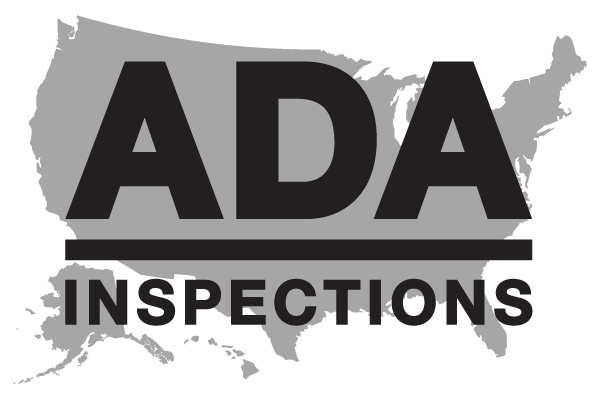Accessible Automatic Teller Machines as Defined by the ADA
ATM Machine
Accessible Automatic Teller Machines (ATM) located at Title II and Title III facilities are required to comply with the Americans with Disabilities Act (ADA). This article will discuss the ADA scoping and technical requirements for ATMs in State and local government facilities, public accommodations, and commercial facilities. 2010 ADA Standard 220 covers scoping requirements for ATMs. Standard 707 covers technical requirements for ATMs. The photo on the right is representative of an ATM installation.
Scoping Requirements
2010 ADA Standard 220.1 [Automatic Teller Machines and Fare Machines] General, states, “Where automatic teller machines or self-service fare vending, collection, or adjustment machines are provided, at least one of each type provided at each location shall comply with [Standard] 707. Where bins are provided for envelopes, waste paper, or other purposes, at least one of each type shall comply with [Standard] 811.” Standard 707 will be reviewed below in Technical Requirements. Standard 811 covers storage.
If a facility or entity provides both interior and exterior ATMs, each such installation is considered a separate location. Accessible ATMs, including those with speech and those that are within reach of people who use wheelchairs, must include all the functions provided to customers at that location at all times. For example, it is unacceptable for the accessible ATM to provide only cash withdrawals while inaccessible ATMs provide cash and also sell theater tickets.
Technical Requirements
2010 ADA Standard 707.2, [Automatic Teller Machines and Fare Machines] Clear Floor or Ground Space*, states, “A clear floor or ground space complying with [Standard] 305 shall be provided.” The graphic below is representative of clear spaces for a forward and parallel approach.
Clear Space Options
Clear spaces must also comply with the ADA Standards for an approach to the clear space and maneuvering clearance.
2010 ADA Standard 707.3, [ATM] Operable Parts*, states, “Operable parts shall comply with [Standard] 309. Unless a clear or correct key is provided, each operable part shall be able to be differentiated by sound or touch, without activation.”
2010 ADA Standard 309 requires operable parts on the ATM to be within reach ranges for either a forward or parallel approach and, the ATM operable parts shall be operable with one hand and shall not require tight grasping, pinching, or twisting of the wrist. The force required to activate operable parts shall be 5 pounds maximum. For most installations the maximum height of an operable part will be 48 inches above the finished floor or ground. The graphic below is representative of a reach range for a forward approach without an obstruction.
Reach Ranges for Forward Approach Without Obstruction
2010 ADA Standard 707.4, [ATM] Privacy, states, “Automatic teller machines shall provide the opportunity for the same degree of privacy of input and output available to all individuals.” In addition to people who are blind or visually impaired, people with limited reach who use wheelchairs or have short stature, who cannot effectively block the ATM screen with their bodies, may prefer to use speech output. Speech output users can benefit from an option to render the visible screen blank, thereby affording them greater personal security and privacy.
2010 ADA Standards 707.5 and 707.8 cover ADA compliance requirements for speech output, user control, and receipts. The basic requirements of Standards 707.5 and 707.8 for accessible ATMs are:
machines shall be speech enabled
speech shall be delivered through a mechanism that is readily available to all users
speech shall be capable of being repeated or interrupted
volume control shall be provided for the speech function
braille instructions for initiating the speech mode shall be provided
where receipts are provided, speech devices shall provide audible information regarding the printed receipt
2010 ADA Standard 707.6 covers requirements for accessible ATM input devices such as keyboards. The basic requirements of Standard 707.6 for accessible ATM input devices are:
at least one tactilely discernible input control shall be provided for each function
numeric keys shall be arranged in a 12-key ascending or descending telephone keypad layout
the number five [5] key shall be tactilely distinct from the other keys
function keys shall contrast visually from background surfaces
characters and symbols on key surfaces shall contrast visually from key surfaces
function key surfaces shall have tactile symbols
2010 ADA Standard 707.7 covers requirements for accessible ATM display screens*. The basic requirements of Standard 707.7 for accessible ATM display screens are:
the display screen shall be visible from a point located 40 inches above the center of the clear floor space in front of the machine
characters displayed on the screen shall be in a sans serif font [clear and simple lines]
characters shall be 3/16 inch high minimum based on the uppercase letter "I"
characters shall contrast with their background




